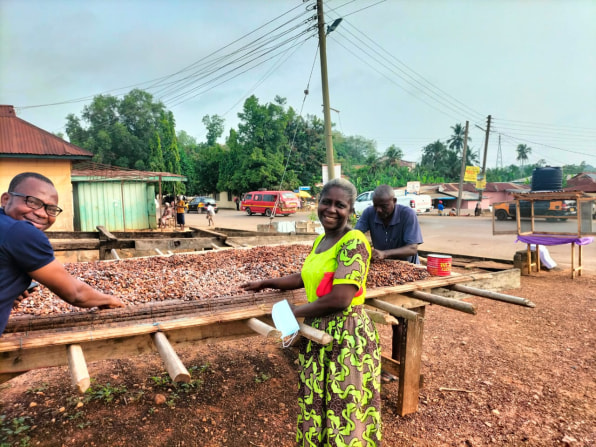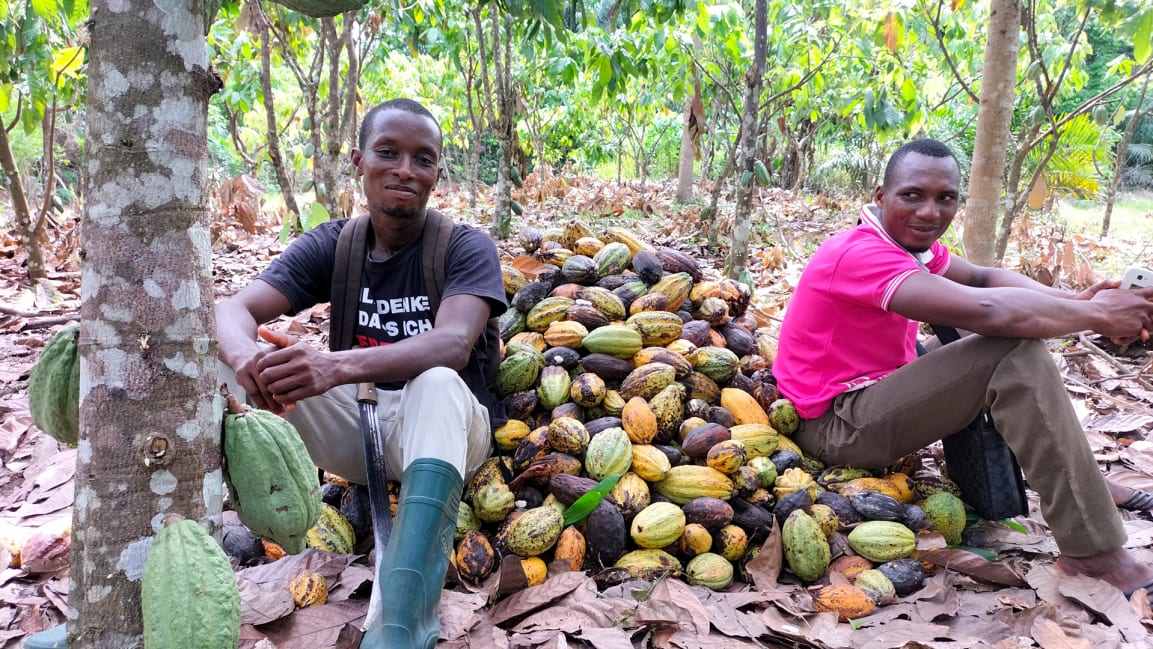More On: Blockchain
DeFi Must Be Defended
Why Jim Cramer suggests purchasing bitcoin or ethereum, with one exception
Shares of Coinbase fall 11% because of a hot report on inflation
Blockchain is not required for Web 3.0, according to the Internet's father.
Bitfarms sells $62M BTC to boost market liquidity
To make payments to subsistence farmers more efficient, the Lemonade Crypto Climate Coalition proposes implementing smart contracts.
Climate change is wreaking havoc on the world's subsistence farmers.
Subsistence farms are often modest operations, frequently less than two hectares in size, but are extremely important to the family that run them and to the surrounding community that relies on the crops. As of 2013, almost 2 billion people on the earth survived only through small-scale subsistence farming. However, those farms are in distress: Rising CO2 levels have increased the likelihood and intensity of extreme weather events such as droughts, floods, and wildfires—a trend that can leave farmers without food and unable to purchase food elsewhere. According to the United Nations Food and Agriculture Organization, catastrophic weather events cost the agriculture sectors of poor countries $108 billion between 2008 and 2018.
However, one startup believes it may assist in resolving the issue through the use of an improbable tool: blockchain.
Using blockchain technology to protect people from climate change may sound like using gasoline to fight a fire, but that is precisely what the Lemonade Crypto Climate Coalition, which began last week, intends to do.

The majority of blockchain technology is well-known for its high energy consumption: According to some studies, a single Bitcoin transaction consumes enough energy to operate an ordinary US home for six weeks. Alternatively, each Bitcoin transaction equates to the emission of 402 kilos of CO2. The Lemonade Crypto Climate Coalition, a new charity branch of insurance technology company Lemonade Foundation, claims it can use blockchain technology to insure against climate calamities for the planet's upward of 2 billion subsistence farmers while avoiding global warming in the process. The Lemonade Foundation is now focusing its efforts in Africa, but hopes to expand to South America, Asia, and everywhere else where small-scale farmers want crop insurance in the future.
Climate insurance is not a new concept, but historically, it has been difficult to provide to subsistence farmers. Because claims are frequently small—in the tens of dollars—it is exceedingly difficult for traditional insurers to underwrite and handle them profitably. "Everything is inverted. It costs more to service a claim than the claim itself," explains Daniel Schreiber, cofounder and CEO of Lemonade.
Lemonade has partnered with weather technology company Tomorrow.io to collect meteorological and climate data for use in underwriting and processing insurance claims. "They've done some quite sophisticated and highly detailed modeling of weather patterns... utilizing the greatest available data," Schreiber says. The data should improve considerably more if Tomorrow. Later this year, io's plans to launch a system of rain-tracking satellites come to fruition.
Lemonade's recommended solution is to automate the compensation process by utilizing smart contracts—a blockchain technology popularized by Ethereum. Smart contracts are programmable operations that run on a network powered by the blockchain. Users define the contract's terms in advance, and if all requirements are met, payment is automatically issued. For instance, a wager may be placed on a March Madness game, and after the game concludes, the network would immediately pay the winner and subtract money from the loser. Or, in the case of a sweet potato farmer in Sub-Saharan Africa, they may recover the financial worth of their lost crops if the region experiences a drought that reaches a particular level.
Although these smart contracts are only as good as the data they are fed, blockchains have evolved an auxiliary technology called oracles that is meant to scrape and validate data from the digital world for precisely this purpose. Oracles would continuously watch data from weather stations and satellites to identify which claims to pay out in the case of Lemonade's new insurance system.
Cascade Tuholske, a postdoctoral researcher at Columbia University's Climate School, believes the concept makes sense on a regional scale. "Resolving actual crop loss on an individual farm would be difficult with any existing meteorological product, but for a large-scale drought, the general meteorological pattern for West Africa or Sub-Saharan Africa can be resolved fairly well," he says, adding that as satellite and weather station data improve in the region, models should improve even more. "Crop insurance, particularly in West Africa, has been proved to be a strong method for mitigating agricultural losses during difficult times," he says. "These farmers require assistance."
HOW ABOUT THE ENVIRONMENTAL CONDITIONS?
Lemonade appears to be fully aware of the environmental consequences of many standard blockchains and is equally determined to avoid them. Its insurance product will be based on the Avalanche blockchain, which is intended to be both cost effective and ecologically benign.
The primary distinction between Avalanche and many other cryptocurrency networks, such as Bitcoin or Ethereum, is that it relies on "proof of stake" rather than "proof of work" to confirm network transactions. For those who need a reminder, the majority of blockchains use proof of work to validate network transactions. To demonstrate its good faith, proof of work requires that a system complete a resource-intensive mathematical computation. This prevents users from gaming the system and reduces vulnerabilities to denial-of-service attacks and other harmful behaviors, as participants must spend significant computational resources.
On the other side, proof of stake is a consensus technique, which means that the network selects users to validate transactions. Users with a greater stake in the network's fidelity (and hence a greater incentive to maintain it) are more likely to be picked. The "winner" of this selection procedure certifies a transaction; subsequent users can verify the validity of the transaction. (Each user who takes part in the validation process wins prizes on the network, which are frequently in the form of the native digital currency.)

While proof of stake is not always as safe as proof of work, it consumes orders of magnitude less energy and enables cheaper, faster transactions, which is beneficial for someone processing a $60 insurance claim for a lost crop. "Transactional fees on Avalanche are a minuscule fraction of what they are on Ethereum," Schreiber notes. "You cannot conduct a $5 transaction on Ethereum, as you will finish up paying $30 in transaction fees."
ENGAGING PEOPLE IN SIGNING UP
Lemonade has partnered with Pula, a Kenyan startup that has been providing microfinance solutions to farmers across Africa for years. If Pula can keep its promises and convince users to join, it may be an opportunity for blockchain to reverse some of the damage it has caused the globe. That, according to Schreiber, is what makes the idea so fascinating.
"Blockchain is an intriguing technology in many ways, but nobody can accuse it of having a real-world influence right now," he argues. "It is precisely for this reason that this project is so intriguing. It is an attempt to accomplish precisely that: to harness the capabilities of this revolutionary technology for a purpose that could not be more grounded in reality: subsistence farmers exposed to the elements."
** Information on these pages contains forward-looking statements that involve risks and uncertainties. Markets and instruments profiled on this page are for informational purposes only and should not in any way come across as a recommendation to buy or sell in these assets. You should do your own thorough research before making any investment decisions. All risks, losses and costs associated with investing, including total loss of principal, are your responsibility. The views and opinions expressed in this article are those of the authors and do not necessarily reflect the official policy or position of USA GAG nor its advertisers. The author will not be held responsible for information that is found at the end of links posted on this page.






















